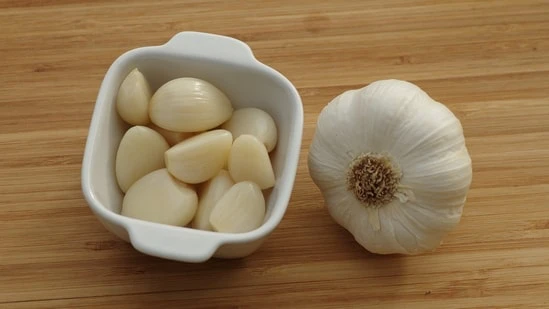Most people know garlic as a basic ingredient, yet scientists have been tracking its effects far beyond cooking. Studies over the past 20 years have examined how garlic preparations interact with inflammation, oxidative stress, and disease-related markers.
Among a review of 83 human intervention trials, garlic crops up again and again as a small, steady bioactive food. It is linked to antioxidant shifts, lower lipids, modest blood-pressure drops, and some immune changes. The evidence is mixed, but the pattern is clear. Effects are real and limited by rapid metabolism and patchy bioavailability.
What the trials report
Clinical work finds garlic preparations, including raw, aged garlic extract (AGE) and tablets, can lower total cholesterol and triglycerides in mild hyperlipidaemia and raise HDL in some trials.
However, doses and forms vary. Some trials used AGE at 400-2,400 mg daily. Others tested garlic powder tablets (400 mg) or higher. Results are not uniform, but they note a modest benefit.
For blood pressure and metabolic markers, the picture is similar. Several randomised trials report systolic and diastolic reductions in uncontrolled hypertension and improved fasting glucose or triglycerides in metabolic-syndrome patients. Other trials show no meaningful change. Sample size, formulation, and study length differ widely.
Garlic’s antioxidants and anti-inflammatory benefits
Trials show garlic can lower markers such as MDA and CRP in some groups (postmenopausal women, obese adults, dialysis patients), while other well-designed studies find little effect. Immune markers, like NK cell activity and some cytokines, rose in selected AGE trials. Again, these are selective signals, not universal findings.
Garlic’s therapeutic effects against cancer
Clinical research has also examined garlic’s possible role in cancer prevention and symptom management. Several human trials have reported associations between long-term garlic intake and reduced risk of certain cancers, including gastric, colorectal, and prostate cancers.
The evidence remains mixed, but some intervention studies noted fewer precancerous gastric lesions and improved immune activity in patients receiving garlic extracts or synthetic garlic-derived compounds.
Other trials found that aged garlic preparations supported immune cell function, including natural killer (NK) cell activity, which may influence how the body responds to tumour growth.
These findings do not establish garlic as a cancer treatment, but they show measurable biological effects that have prompted continued study in oncology-related nutrition research.
The review makes clear that garlic can influence several disease-linked biomarkers, though outcomes depend heavily on dose and formulation. Broader, long-term clinical trials are still needed before its therapeutic role can be defined with certainty.
